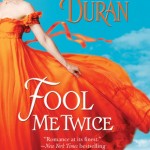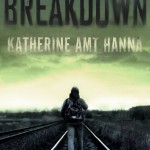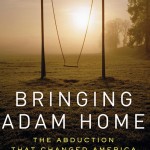 Was remains one of my absolute favorite books. It was the first book I ever set down and sobbed over, without knowing exactly why. I’m not sure if it holds up some twenty-three years after it’s release because I am still a contemporary reader for it. I believe it does, despite this being a very different world than the one it was written in. Geoff Ryman was writing about compassion during a time it seemed in very short supply. Was is about HIV/AIDS, child abuse, mental illness and self determination.
Was remains one of my absolute favorite books. It was the first book I ever set down and sobbed over, without knowing exactly why. I’m not sure if it holds up some twenty-three years after it’s release because I am still a contemporary reader for it. I believe it does, despite this being a very different world than the one it was written in. Geoff Ryman was writing about compassion during a time it seemed in very short supply. Was is about HIV/AIDS, child abuse, mental illness and self determination.
It was written when so many of us had buried brothers or friends or lovers under the judgement of what felt like the entire world. If we remove this very specific experience from Was does it still have the same impact? Can it exist outside of the plague’s shadow? Yes. Absolutely. Normally I make two or three notes when reading a book. For Was I made 16 and none of them involved death.
Geoff Ryman is my gold standard for writing skillfully about child abuse. Dorothy Gael broke my heart all over again. Ryman is emotionally accurate both for the slow destruction of Dorothy and the good intentions of her abusers. Each is relatable. Each is understandable. Each is enraging, including Dorothy herself.
Dorothy thought a moment and said, “I learned to be disappointed and not to hope too much. I learned how to be beaten and how to beat others. I learned that I am worthless and the world is worthless, and that love is a lie and if it’s not a lie, then it’s wasted.” “They learned you wrong,” he said.
Ryman, Geoff. Was: a novel (p. 355). Small Beer Press. Kindle Edition.
Right there. That bit. I sob every single time. Dorothy doesn’t know any other direction. She’s been victimized for so long that the only kindness she has to look forward to is her eventual death. Dorothy is a fighter, continually punished for surviving. Unlike her Oz counterpart, there is no abundance of safety awaiting her. Contrasted to the gingham and braids girl Baum created, she’s unrecognizable. In Was, that’s true of every Dorothy. We are all of us on the wrong side of the rainbow.
But nice people were not supposed to be able to recognize certain things, because they were supposed to be so untainted that they couldn’t even think about them. People sincerely believed that they were shocked and surprised and that they had had no idea such things happened.
Ryman, Geoff. Was: a novel (pp. 207-208). Small Beer Press. Kindle Edition.
Alongside the story of Frank and Dorothy, Ryman weaves in that of Judy Garland and her family. His Judy is just as lost, just as hopeless as she tries to grab her life away from the forces of social pressure and circumstance. Her Dorothy is as doomed as Dorothy Gael. At times in Was you think Ryman has brought in too many characters. How can a horror convention, an autistic boy, a small town charmer, an AIDS patient and a theater owner all come together in the same story as Judy and Dorothy? By the end they are essential. Was is a novel about free will. As Ryman says in his end note:
Tomorrow, we could all decide to live in a place not much different from Oz. We don’t. We continue to make the world an ugly, even murderous place, for reasons we do not understand.
Ryman, Geoff. Was: a novel (p. 369). Small Beer Press. Kindle Edition.
Was has a reputation for being a dark, even depressing book. It’s understandable. The happy endings are obscured and bear no relation to what we traditionally think of as a happy ending. Everyone dies, mostly. Along the way there are small victories, revelations of self determination and wishes fulfilled. Tiny shifts of probability.
I don’t know how a reader born after 1992 will experience this book. Is autism fairly represented? Should Ryman have excised his single use of a racial slur? Is the homophobia too dense? Can you understand now what it was like then? I can only tell you this – Was remains one of my top five books. If you’ve never read it, I hope you do.
My life, Baby, is a parade of mistakes, and I still don’t know what I did wrong.
Ryman, Geoff. Was: a novel (p. 137). Small Beer Press. Kindle Edition.
The Small Beer Press scan had a few noticeable errors. There’s one sentence completely garbled. If you have access to a print copy, I’d prioritize it over the Kindle edition.














